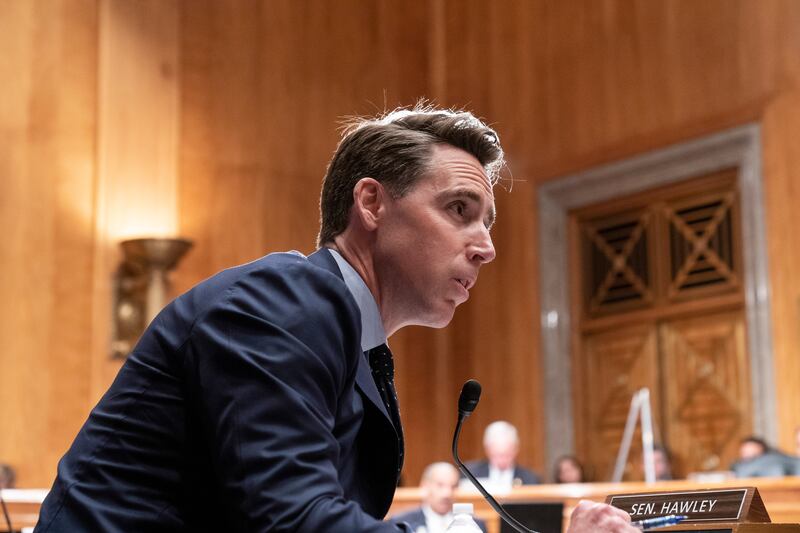Missouri Republican Sen. Josh Hawley introduced legislation Thursday to prohibit social media companies from allowing minors under 16-years-old to access the online platforms. The legislation matches closely with Utah Republican Rep. Chris Stewart’s recent bill in the House to regulate social media access to minors.
Hawley’s bill, the Making Age-Verification Technology Uniform, Robust and Effective (MATURE) Act, would also create an audit process to hold social media companies accountable, according to a statement from his office. The bill would also allow for “private right to action,” meaning, if the bill becomes law, any individual could sue the social media companies for damages based directly on the proposed public statute.
Under the proposed legislation, the Federal Trade Commission would be asked to conduct semiannual audits of social media companies to ensure compliance.
The MATURE Act would require social media users who wish to create an account to submit their full legal name and age, as well as a government-issued ID that can verify that information.
“Children suffer every day from the effects of social media,” Hawley said. “At best, Big Tech companies are neglecting our children’s health and monetizing their personal information. At worst, they are complicit in their exploitation and manipulation.”
Hawley added, “It’s time to give parents the weapons they need to strike back.”
Last month, Stewart told the Deseret News the “emotional heroin” of social media is causing an increasing mental health crisis among the nation’s youth. Recently he also proposed legislation to prohibit access to social media for minors under 16.
“The government is involved with regulating when my children can drink, when they can smoke, when they can drive,” Stewart said. “We think society has a responsibility to protect young people and government should help in protecting them.”
In an op-ed Thursday morning for the Washington Post, Hawley urged Republicans and Democrats to come together insisting that protecting children online is a “nonpartisan issues” that deserves urgency.
“Decades from now, future generations will look back on social media in the 2010s and 2020s as we look back on the days of asbestos in buildings or lead in the water supply,” Hawley said. “Danger was everywhere; leaders only needed to realize it.”
President Joe Biden signaled a bipartisan bill on social media regulation might be possible in his State of the Union address. In his speech last week, he called for Congress to support the mental health care of children and added, “we must finally hold social media companies accountable for the experiment they are running on our children for profit.”
Biden then called for Democrats and Republicans to propose legislation “to stop Big Tech” from collecting teenagers information online and targeting children with advertising.
Federal law currently restricts online companies from providing services without parental consent to minors under 13, but it is difficult to enforce. Surgeon General Vivek Murphy cautioned last month that the age requirement must be raised to avoid disrupting brain development in children.
Utah Gov. Spencer Cox also gave voice to the danger social media poses to kids in his State of the State speech last month. Cox said he supports Utah lawmakers working to prevent social media companies “reckless” data collection from children.

